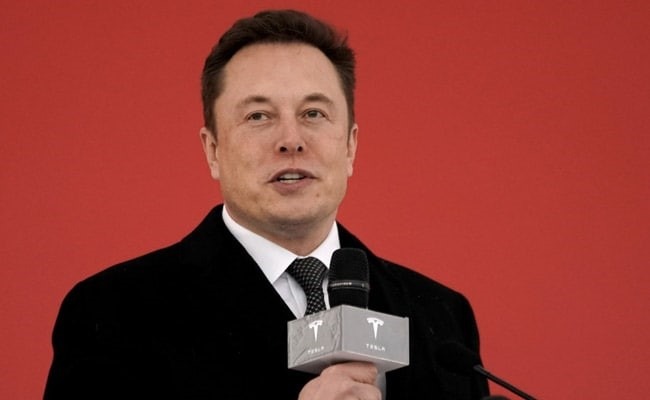| Translate This News In |
|---|
Elon Musk’s demand that Tesla Inc. employees cease “phoning it in” and return to work has thrown the world’s wealthiest person into the raging debate over the future of work, demonstrating once again that some CEOs are deaf to employees’ growing desires for flexibility.
In a note to Tesla staff, Musk said, “Everyone at Tesla is obligated to spend a minimum of 40 hours in the office every week.” This is the case “It has to be where your actual coworkers are, not some fictitious location. We will presume you have quit if you do not show up. Your presence must be more noticeable as you advance in rank.”
However, such demand may not be acceptable to some at Tesla, and it will undoubtedly frighten employees at Twitter Inc., which Musk is attempting to acquire, who have been able to work from anywhere during the outbreak. Musk’s stance could cost him some talent in today’s tight labour market, when salaries are skyrocketing and people are quitting at an alarming rate.
“Companies that require their employees to return to the office are likely to run into a number of issues,” said Brian Kropp, the head of human-resources research at Gartner Inc., a technology consulting firm. “They’ll have to choose between a smaller talent pool and paying a higher wage premium to get people to return.”
According to a poll of more than 10,000 white-collar workers conducted by Future Forum, more than two out of three so-called knowledge workers (data scientists, engineers, and graphic designers) choose hybrid employment. Slack Technologies, a Salesforce Inc. company that provides a popular workplace communications service, is supporting the study consortium.
Offices Vacant
According to Future Forum, only 19 percent of executives work five days a week from home, compared to 35 percent of non-executives. Full-time office workers had greater stress and anxiety levels, and more than half of them would prefer to work flexibly at least part of the time.
That does not sit well with Tesla CEO Elon Musk. Musk stated in his return-to-work memo that if he hadn’t “lived in the plant so much — so that folks on the line could see me working alongside them,” Tesla would have “long ago gone bankrupt.”
He also mocked businesses that have more flexible work rules, saying: “When was the last time they delivered a top-notch item? It’s been a long time since we’ve seen each other.”
When it comes to granting flexibility to certain employees while excluding others, carmakers, merchants, and other businesses with a mix of white-collar and front-line staff tread a narrow line.
The pandemic revealed how reliant society is on blue-collar employees’ physical presence in hospitals, slaughterhouses, and supermarkets. In an already unequal US economy, the concept of white-collar professionals checking in safely from home while lower-paid employees risked their health by showing there in person has sparked animosity.
It’s Just Me
In comparison to some of his auto-industry competitors, Musk’s office mandate is unique. Ford Motor Company implemented a “flexible hybrid” approach in April, in which some salaried employees come in for collaborative work but work from home the rest of the time. GM’s “work properly” policy allows white-collar staff to check in remotely rather than coming into the office every day. Mitsubishi Motors North America Inc. allows all of its corporate employees to work from home on a regular basis.
Musk’s criticism of remote work as “fake” reflects a widespread belief among executives that remote workers aren’t as productive, imaginative, or collaborative as those who work in the office.
Last year, Goldman Sachs Group Inc. CEO David Solomon labelled remote work a “aberration,” while Morgan Stanley CEO James Gorman voiced displeasure that New Yorkers went to the city’s eateries but avoided their workplaces.
According to research from Stanford University’s Nicholas Bloom and other academics, remote workers are just as productive as office workers and are generally happier.
Twitter’s Opinion
Musk’s ultimatum also contradicts Twitter’s present policy, which allows the majority of its workers to work from home on a permanent basis.
“If our employees are in a role and situation that allows them to work from home permanently, we will make that happen,” Twitter claimed last year. According to Willis Towers Watson, a risk management and human resources firm, half of the world’s workforce now works remotely or in a hybrid environment, up from 9% prior to the Covid-19 epidemic.
“The broad use of these work arrangements during the epidemic has debunked some of the stereotypes that have surrounded distant work over the years,” said Brad Bell, director of Cornell University’s Center for Advanced Human Resource Studies. “As a result, there has been a rise in openness and acceptance.” “Obviously, it isn’t true,” Tesla says.


















